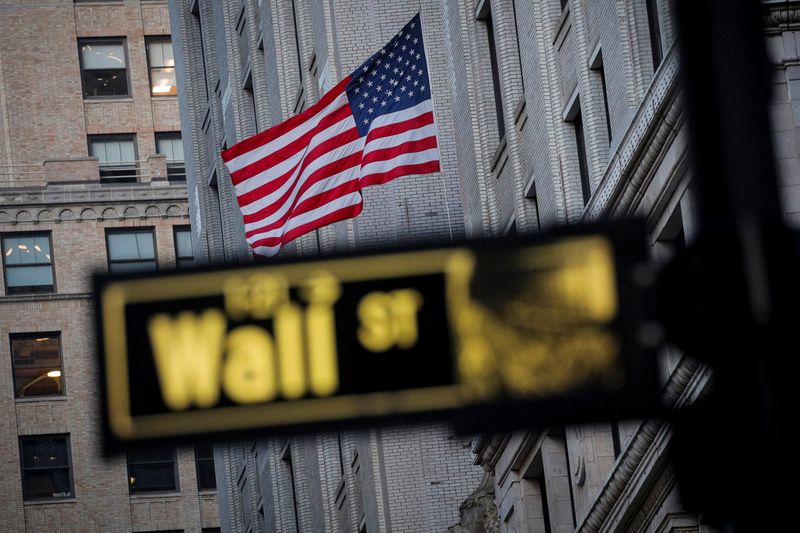By Laura Matthews and Carolina Mandl
NEW YORK (Reuters) - U.S. trading on Tuesday moved to a shorter settlement cycle for securities transactions, putting investors and regulators on alert for increased trade failures and other hiccups in the world's largest financial market.
Investors in U.S. equities, corporate and municipal bonds and other securities now must settle their transactions one business day after the trade, instead of two, to comply with a rule change adopted last February by the U.S. Securities and Exchange Commission.
Regulators hope faster settlement will reduce risk and improve efficiency. They sought the new standard, commonly called T+1, after the 2021 trading frenzy around the "meme stock" GameStop (NYSE:GME) highlighted the need to reduce counterparty risk and improve capital efficiency and liquidity in securities transactions.
However, it comes with risk since firms have less time to line up dollars to buy stocks, recall shares out on loan, or fix transaction errors, which could heighten the risk of settlement failures and raise transaction costs.
A big test for the market occurs on Wednesday, when trades executed last Friday, when T+2 was still in place, and on Tuesday, the first day of T+1, will be settled. This is expected to lead to a rise in volume.
"There will be some growing pains and a few hiccups," said Joe Saluzzi, co-head of equity trading at Themis Trading. "Tomorrow morning we'll see if anything happened."
Another test occurs on Friday, when MSCI global indexes will rebalance in a quarterly event, leaving some participants concerned that one of the year's biggest trading days could leave markets strained as they adjust to the new system.
Settlement is the process of transferring securities or funds from one party to another after a trade has been agreed. It takes place after clearing and is handled by the Depository Trust Company, a subsidiary of the Depository Trust and Clearing Corporation.
Trades fail when a buyer or seller do not meet their trading obligation by the settlement date, which could result in losses, penalty fees and hurt reputations.
The U.S. will be following India and China, where faster settlement is already in place. Canada, Mexico, Argentina and Jamaica implemented it on Monday.
"Hopefully, we'll start to see the benefit that we expect to see which is the reduction in risk, a reduction in margin or collateral, and we're hoping that this happens without serious impact to settlement rates," said RJ Rondini, director of securities operations at the Investment Company Institute.
TRADE FAILURES
Market participants such as banks, custodians, asset managers and regulators worked over the weekend to ensure a smooth switch.
"To date, all T+1 implementation activities have been completed according to plan," said Jeff Naylor, chief industry operations officer at ICI.
A rise in trade failures is expected initially, even though DTCC and market participants have been conducting a series of tests for months.
"It's perfectly normal that we'll see some sort of small change in settlement rates ... but we expect that settlement rates will quickly return to normal," said Rondini.
More failures could trigger "tens of millions of dollars each day in penalty fees," said BNY Mellon (NYSE:BK).
On average, market participants expect the fail rate to increase to 4.1% after T+1 implementation, from 2.9% currently, research firm ValueExchange showed.
Sifma expects the fail rate increase to be minimal, and the SEC said there may be a short-term uptick.
Ted O’Connor, senior vice president at financial technology firm Arcesium, said some market participants were keeping increased cash on hand to address issues that could arise from the shift.
"The mid-size and the smaller managers are the ones that we're going to be watching closely because they tend to be more reliant on manual processes,” he said.
Brian Steele, president of clearing and securities services at DTCC, said more than 90% of the industry has been participating in the process since testing started in August 2023. There is still "a deep level of muscle memory" from the industry's move to T+2 in 2017, he said.
RISK/REWARD
Trade bodies and regulators say the shift will mitigate systemic risk because it reduces counterparty exposure, improves liquidity and decreases margin and collateral requirements.
"Shortening the settlement cycle ... will help the markets because time is money and time is risk," said SEC chair Gary Gensler in a statement.
Still, some market participants are concerned the change could transfer risks to other parts of the capital markets such as trade-related foreign exchanges to fund transactions and securities lending.
Foreign investors, who hold nearly $27 trillion in U.S. stocks and bonds, must buy dollars to trade these assets. They previously had a whole day to source the currency.
Natsumi Matsuba, head of FX trading and portfolio management at Russell Investments, said the firm was using small trades weeks ahead of implementation to test market liquidity after hours during times it is known to be sparse to see how many bank counterparties were extending weekend trading hours.
The move also requires exchange-traded funds (ETFs) to juggle multiple jurisdictional requirements and capital needs.

Gerard Walsh, who leads Northern Trust (NASDAQ:NTRS)'s Global Capital Markets Client Solutions group, said managers need to be aware of the potential range of solutions available.
"I don't think any of that fleshes itself out on week one," Walsh said.